Register's 17 Pulitzer Prizes place it among the most-honored U.S. regional newspapers
- Oops!Something went wrong.Please try again later.
More: Photos: The Register's Andie Dominick wins Pulitzer Prize
Among American journalists, no award is as prestigious as the Pulitzer Prize. A bequest to Columbia University by the estate of newspaper publisher Joseph Pulitzer established the prizes in 1917, and it didn't take long for the Des Moines Register to claim the first of its 17 ― a number that places it among the most honored of U.S. regional newspapers.

More: Des Moines Register Pulitzer Prizes
Here are the Register's Pulitzer Prizes ― six for national reporting, four for editorial writing, three apiece for photography and editorial cartooning and one for public service ― spanning a century of service to Iowa readers.
1924: Editorial cartooning
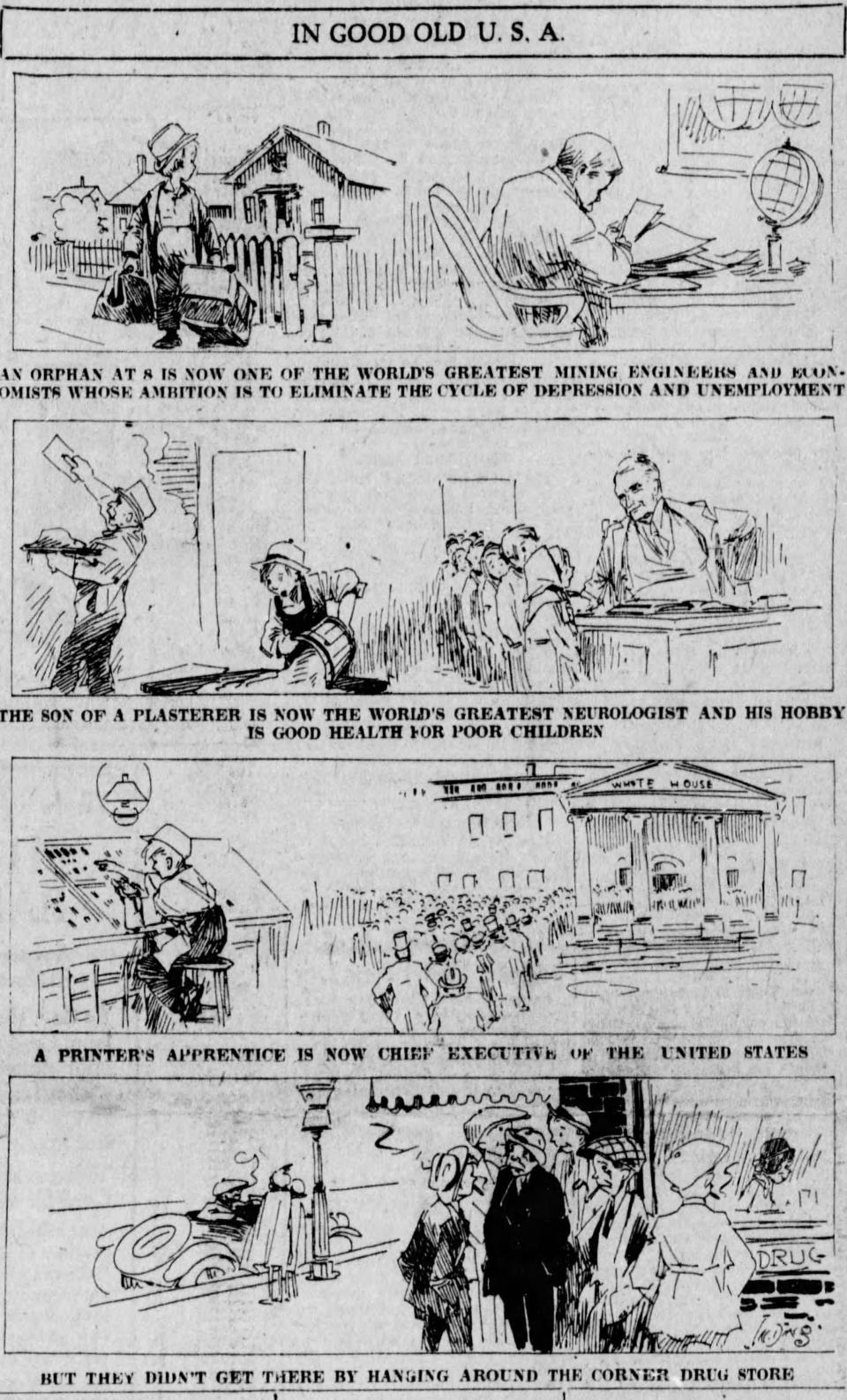
In only the third year for the category, Jay N. “Ding” Darling wins with “In Good Old USA,” a four-panel drawing that contrasts the achievements of people like Iowa's Herbert Hoover, who was orphaned as a child but went on to become U.S. commerce secretary (and later president), and President William G. Harding, who had been a printer's apprentice as a boy, with youths "hanging around the corner drug store."
1938: Editorial writing
Editorial Editor William Wesley Waymack wins, based on a wide-ranging sampling of his work.
1943: Editorial cartooning
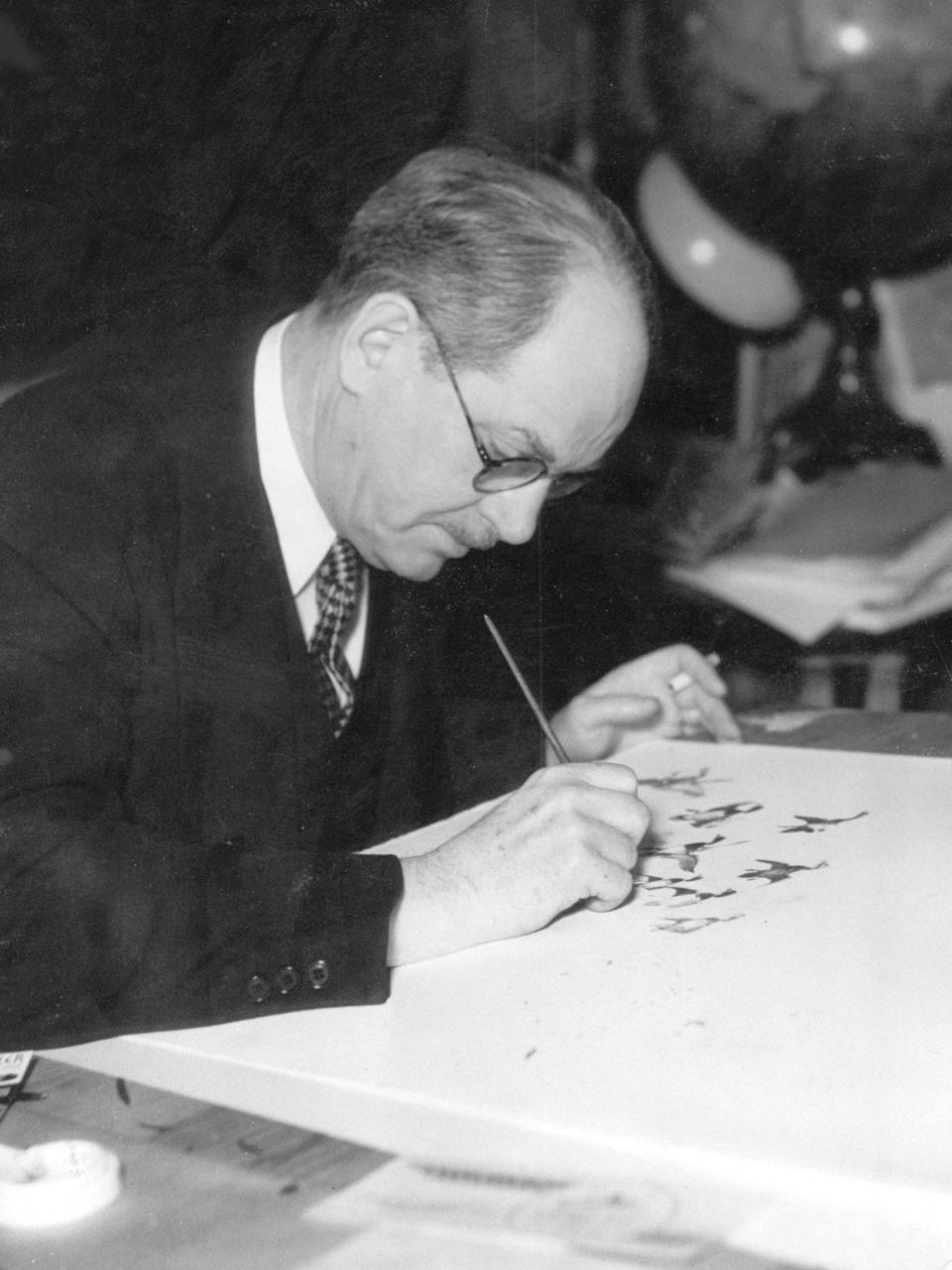
Darling wins again for “What a Place for a Waste Paper Salvage Campaign,” a jab at Washington's paperwork-spewing bureaucracy.
1943: Editorial writing
The same year as Darling receives his second Pulitzer, Associate Editor Forrest W. Seymour wins with editorials that the Pulitzer committee praises for "clearness of style, moral purpose, sound reasoning and power to influence public opinion."
1952: Photography
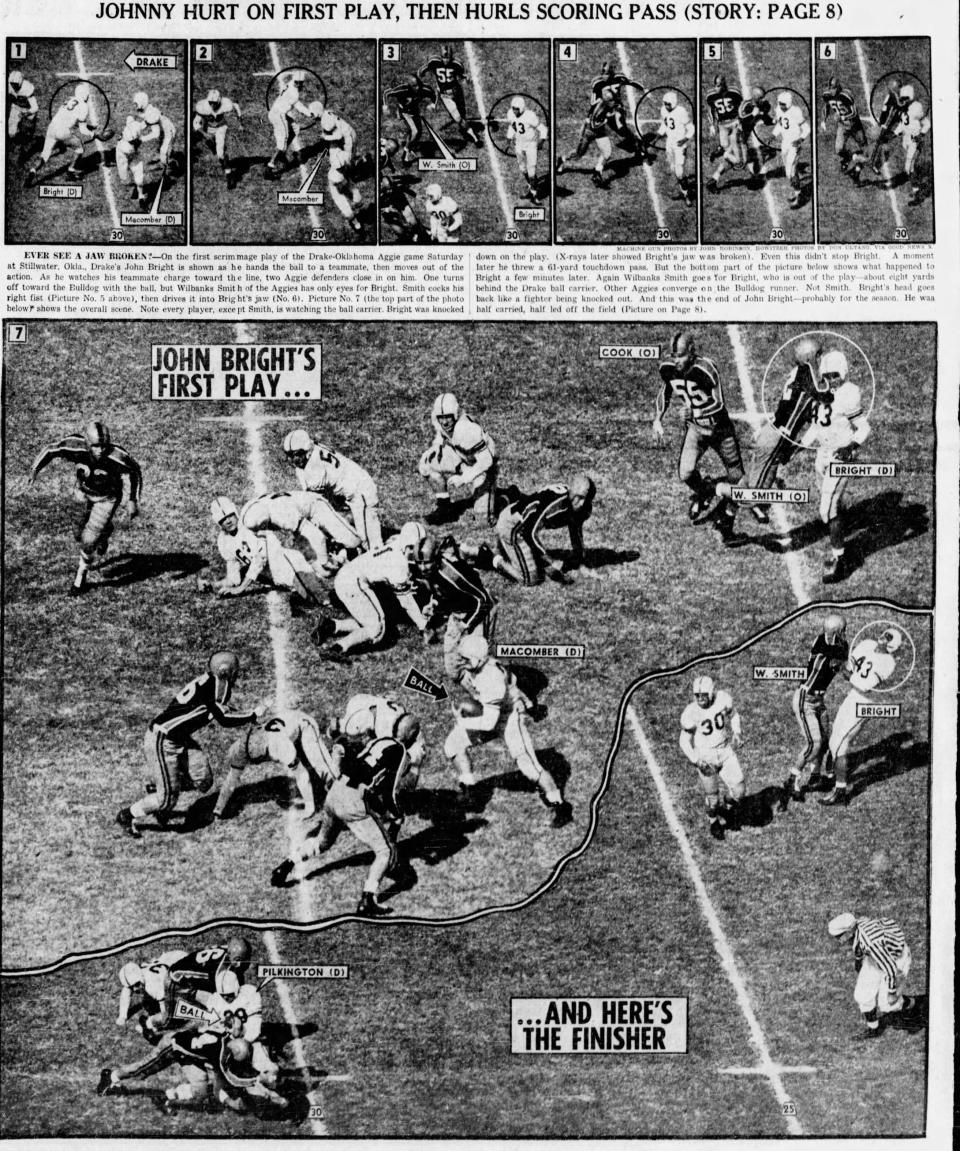
Photographers Don Ultang and John Robinson win for a series of photos taken with a special camera rig that capture Black Drake University halfback Johnny Bright being assaulted by a white Oklahoma A&M player who broke his jaw after Bright handed off the ball to a Drake tailback and stood watching the subsequent play. The injured Bright is then shown in another series a few plays later, throwing a 61-yard touchdown pass before receiving another cheap shot and retiring from the field. Though condemnation was widespread, Oklahoma A&M, now Oklahoma State University, doesn't apologize until 2005, 22 years after Bright's death.
Drake's football field bears Bright's name, as does Bright College, which offers affordable access to the Des Moines private university.
1954: National reporting
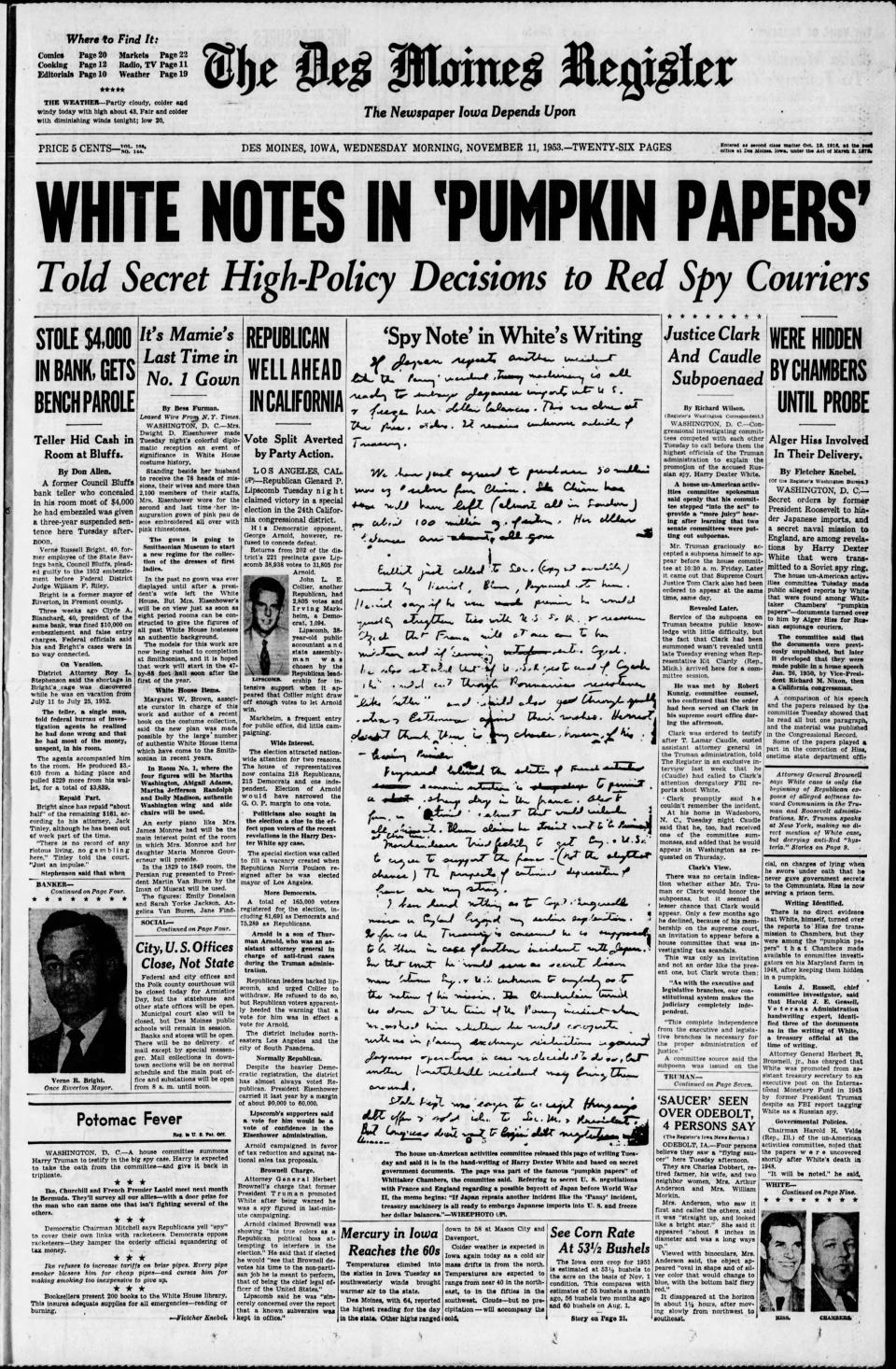
Richard Wilson, the Register's founding Washington bureau chief, receives the Register's first Pulitzer in the national reporting category for obtaining and writing about a yet-undelivered FBI memo to the U.S. Senate that appears to confirm alleged espionage on the part of late former Truman administration Treasury official Harry Dexter White.
1956 Editorial writing
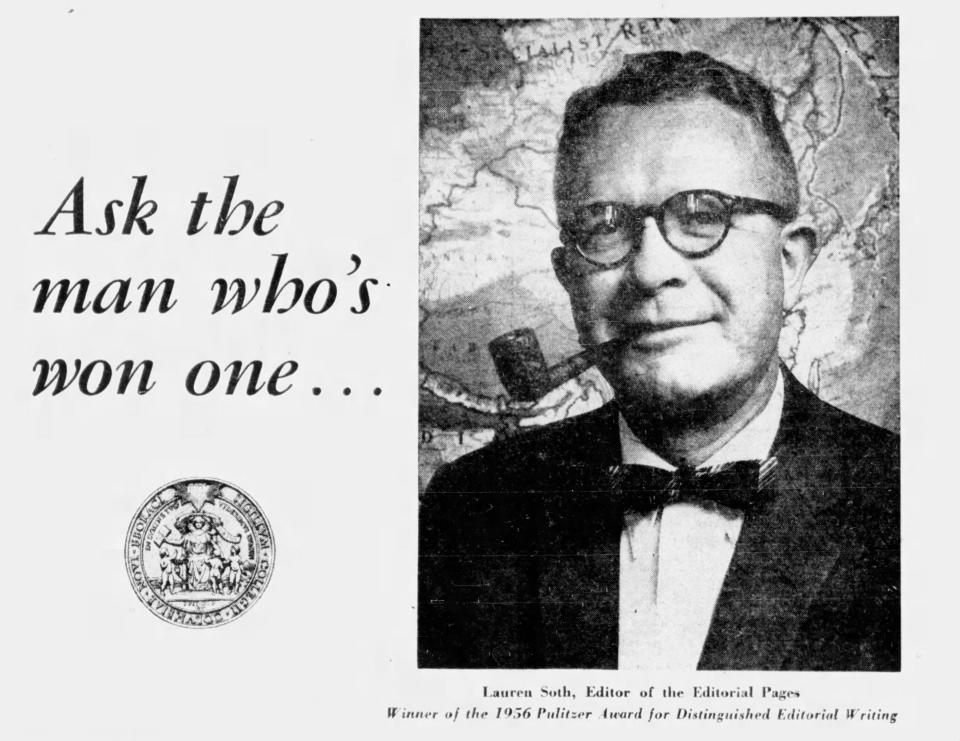
Register Editorial Editor Lauren K. Soth wins for a 1956 editorial written during the depths of the Cold War after Soviet Premier Nikita Khrushchev said his country would do well to adopt the techniques of American agriculture. Soth, acknowledging he has no authority to do so, invites Khrushchev to send an agricultural delegation to Iowa, and floats the idea of Iowa sending one to the Soviet Union. The Soviets do visit, and Soth travels with an Iowa delegation to the USSR. In 1959, Khrushchev himself travels to Iowa.
1958: National reporting
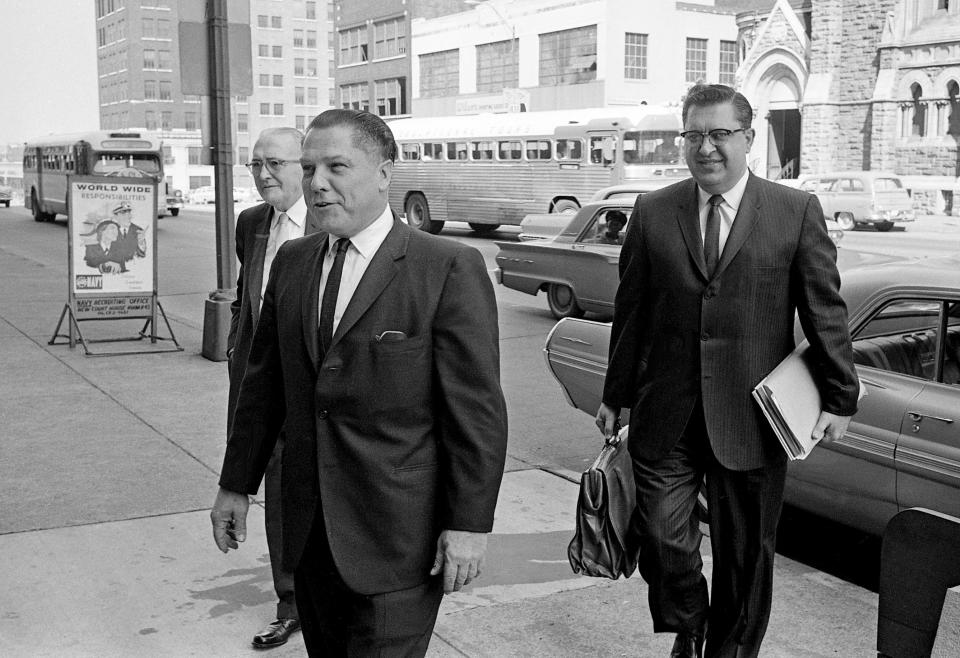
Clark Mollenhoff, a reporter in the Register's Washington bureau, wins with a five-year investigation of racketeering in labor unions that results in a series of congressional investigations, prosecutions and reform legislation aimed at figures such as Teamsters President Jimmy Hoffa.
1963: Editorial cartooning
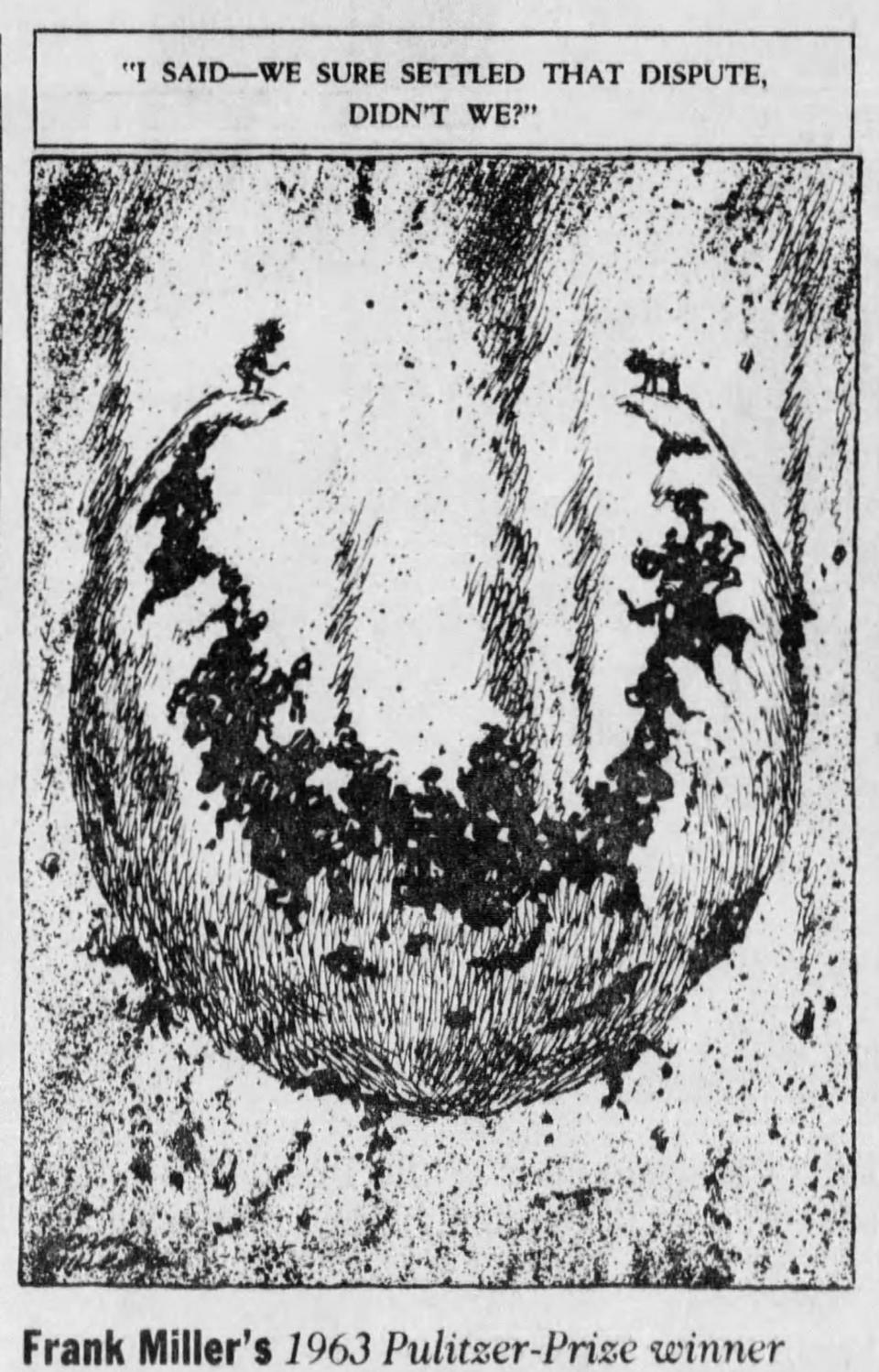
The Register's Frank Miller, a successor to J.N. "Ding" Darling, wins for his editorial cartoon that depicts one figure shouting to another across a chasm in the nuclear-charred Earth: “I said ― we sure settled that dispute, didn’t we!”
1968: National reporting
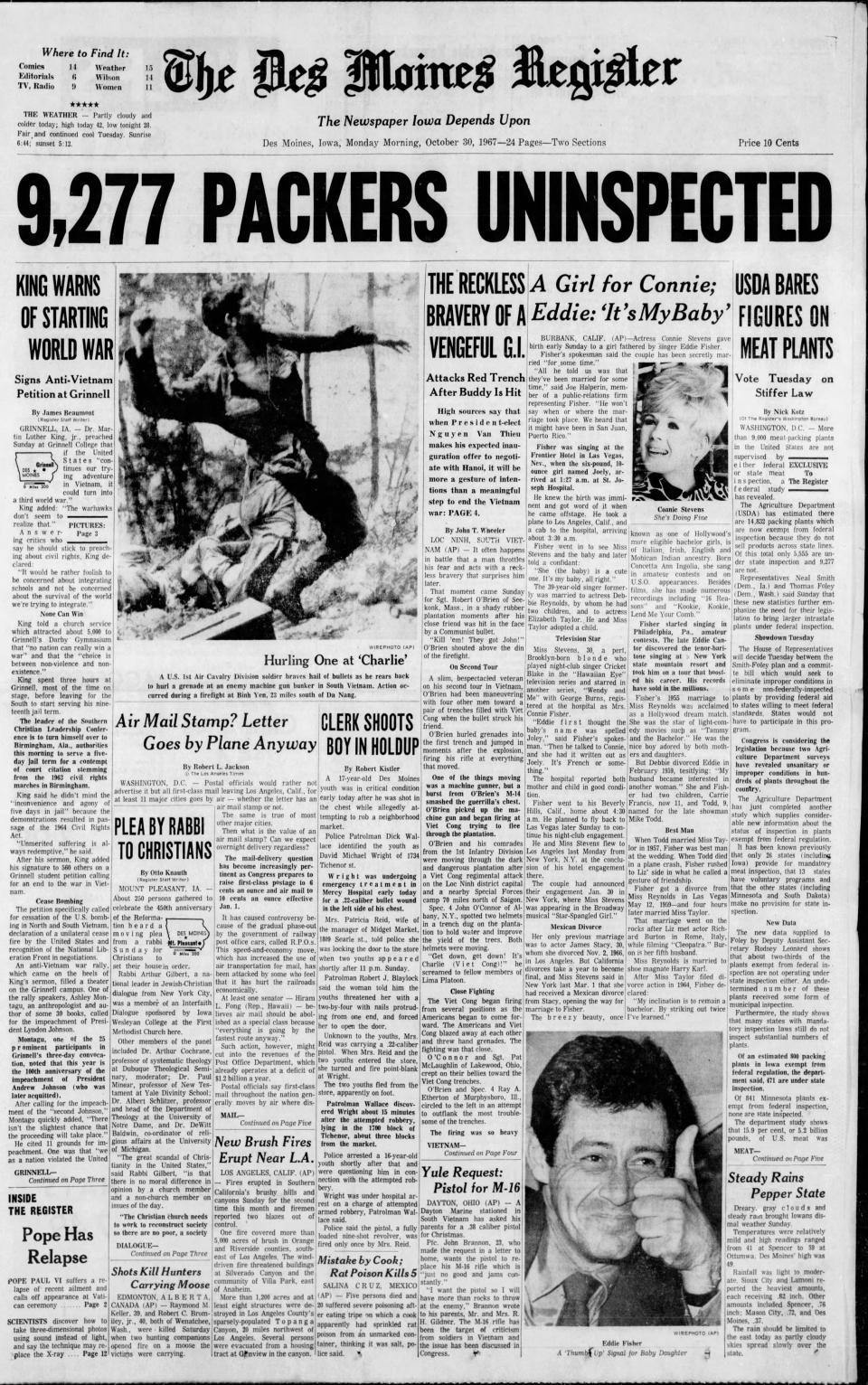
Nathan K. "Nick" Kotz, a reporter in the Register's Washington bureau, wins the Pulitzer after a series of investigative reports on unsanitary and unsafe conditions in meatpacking plants. It's a problem thought long before solved by the creation of a federal inspection system. But Kotz finds that many plants aren't subject to the law because their products are locally consumed and aren't shipped in interstate commerce and that the conditions at some resemble those pioneering muckraker Upton Sinclair wrote about in his seminal 1905 novel "The Jungle." Kotz's reporting helps ensure passage of the Federal Wholesome Meat Act. It is the first of five Pulitzers the Register will win for agriculture-related reporting and photography.
1976: National reporting
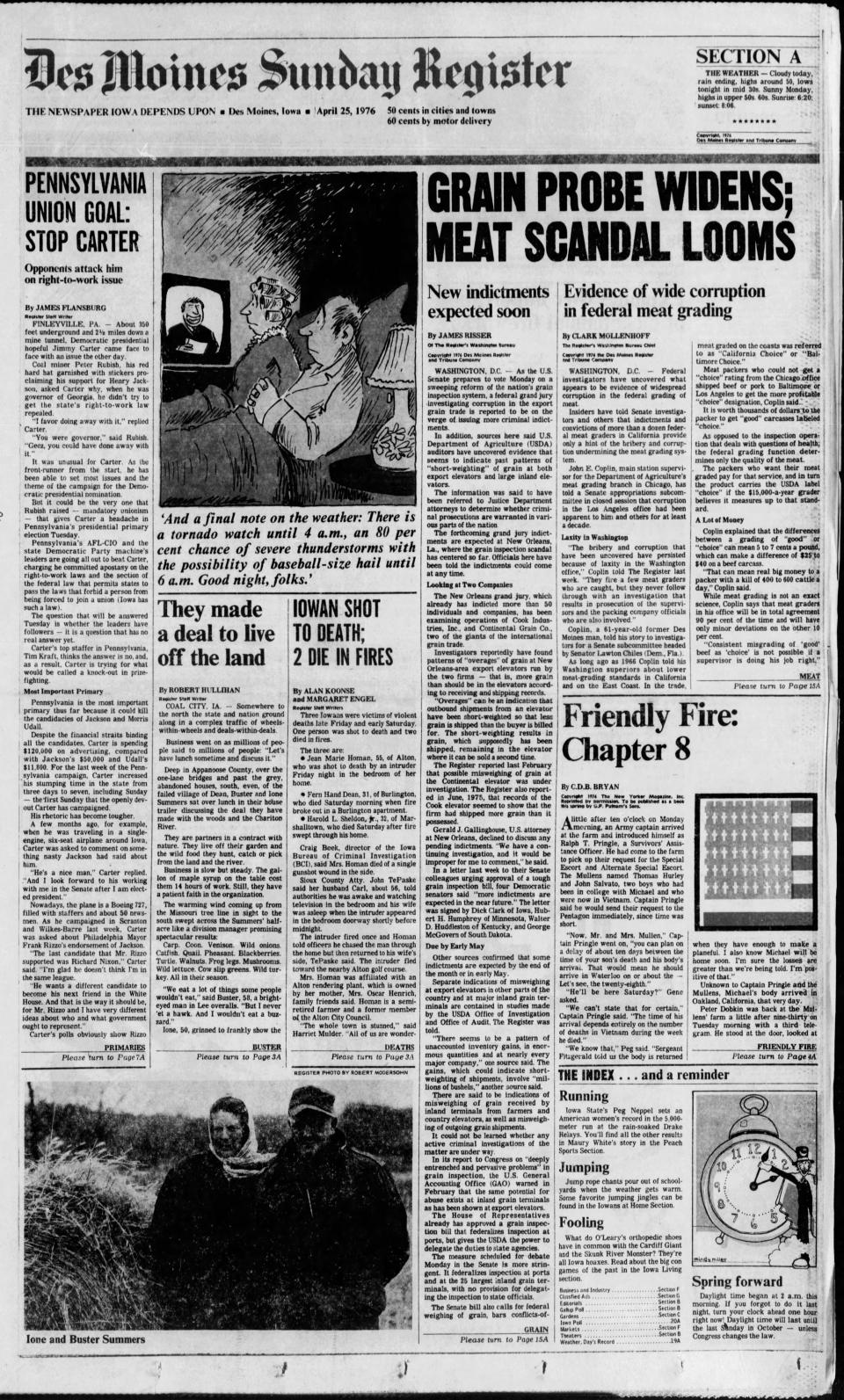
Yet another Register Washington reporter, James Risser, wins for a report on the so-called "dirty grain" scandal involving corruption in the grain industry. The bribery, fraud, skimming and other practices he writes about are endangering the U.S. grain export market, vital to Iowa and other Farm Belt states.
1979: National reporting

James Risser wins again for a groundbreaking series of stories about what, 45 years later, are familiar agriculture-related environmental issues: water pollution, overuse of fertilizer and chemicals, concentrated animal feeding operations, erosion, wasteful irrigation and the failure of state and federal governments to effectively deal with those issues.
1985: National reporting
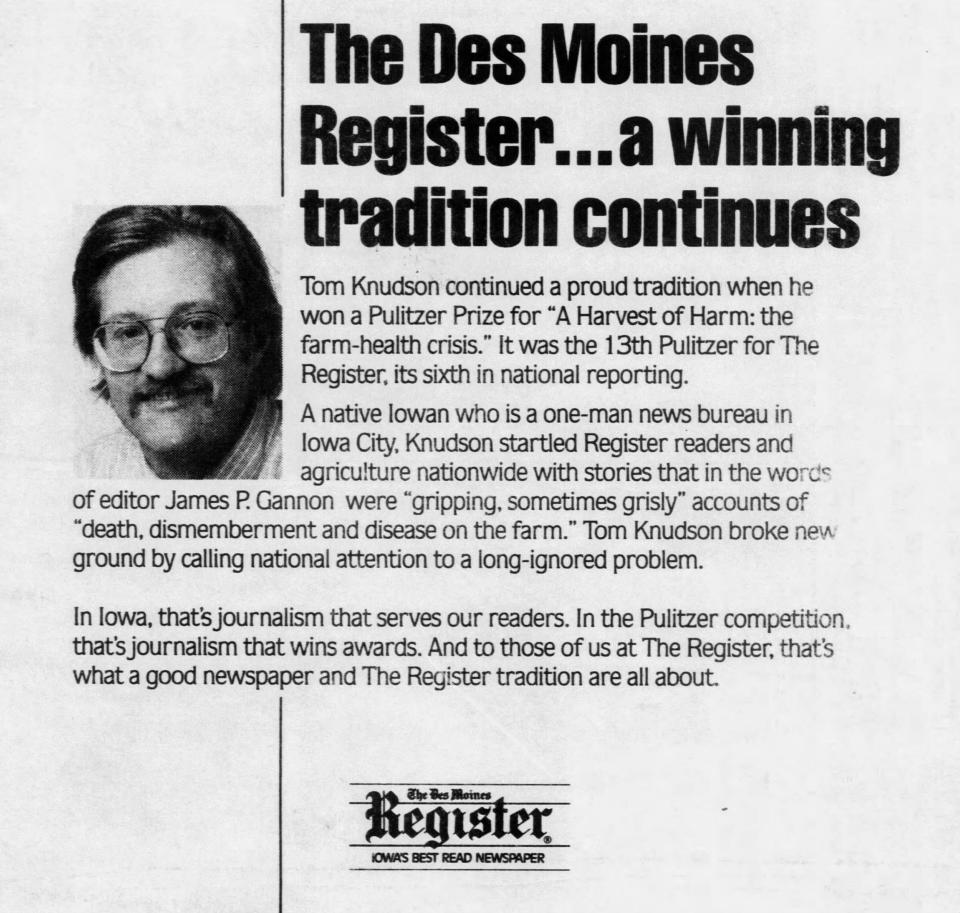
Picking up where Risser left off, the Register's Iowa City bureau reporter, Tom Knudson, wins the Pulitzer for a series, "A Harvest of Harm: the farm-health crisis," on the dangers and long-term health risks of farming, one of the nation's most hazardous occupations.
1987: Photography
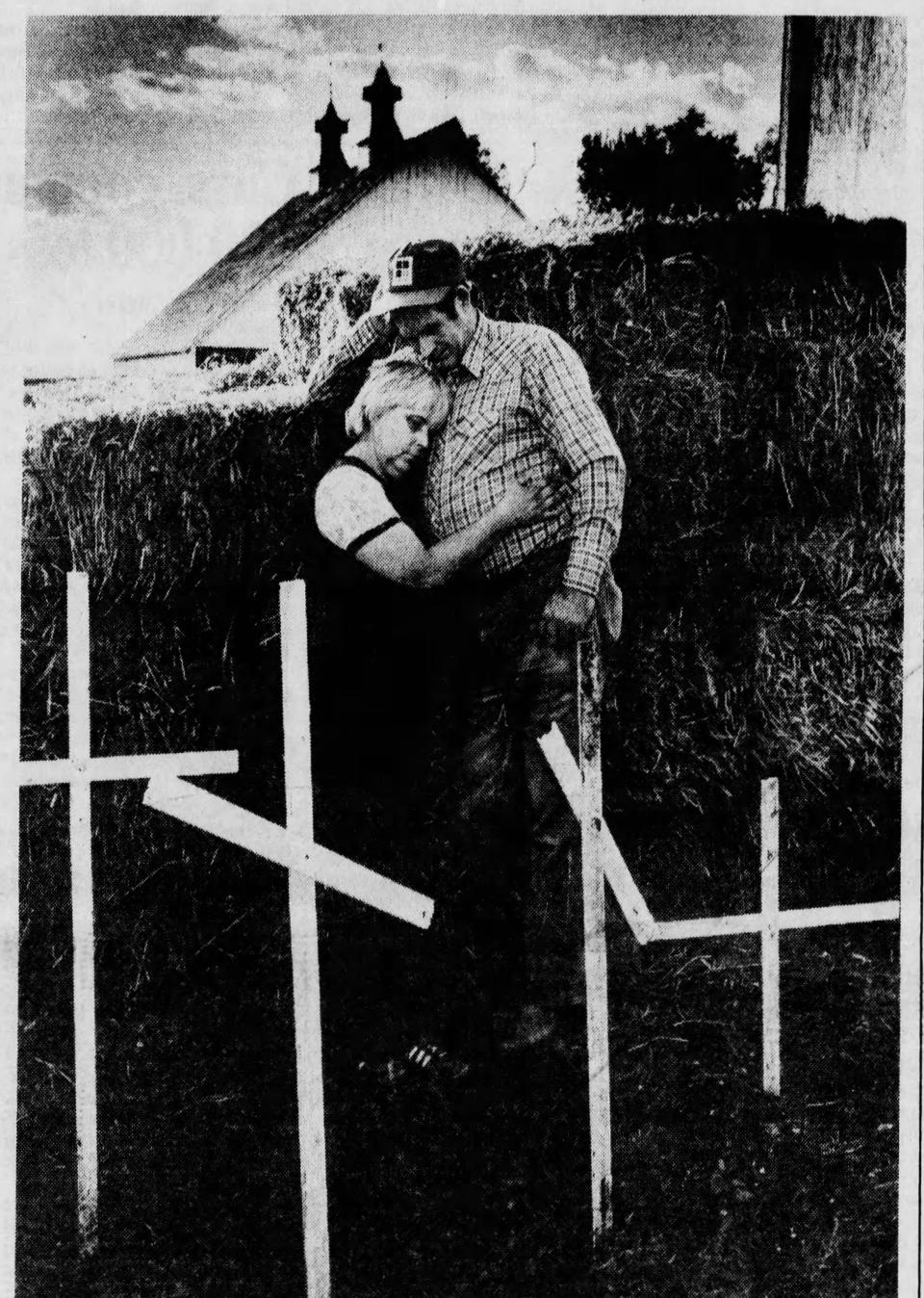
Register photographer David Peterson spends months crisscrossing Iowa to document the effects of the devastating 1980s Farm Crisis, capturing moving images of the slow-motion tragedy that claims thousands of Iowa family farms.
1991: Public service
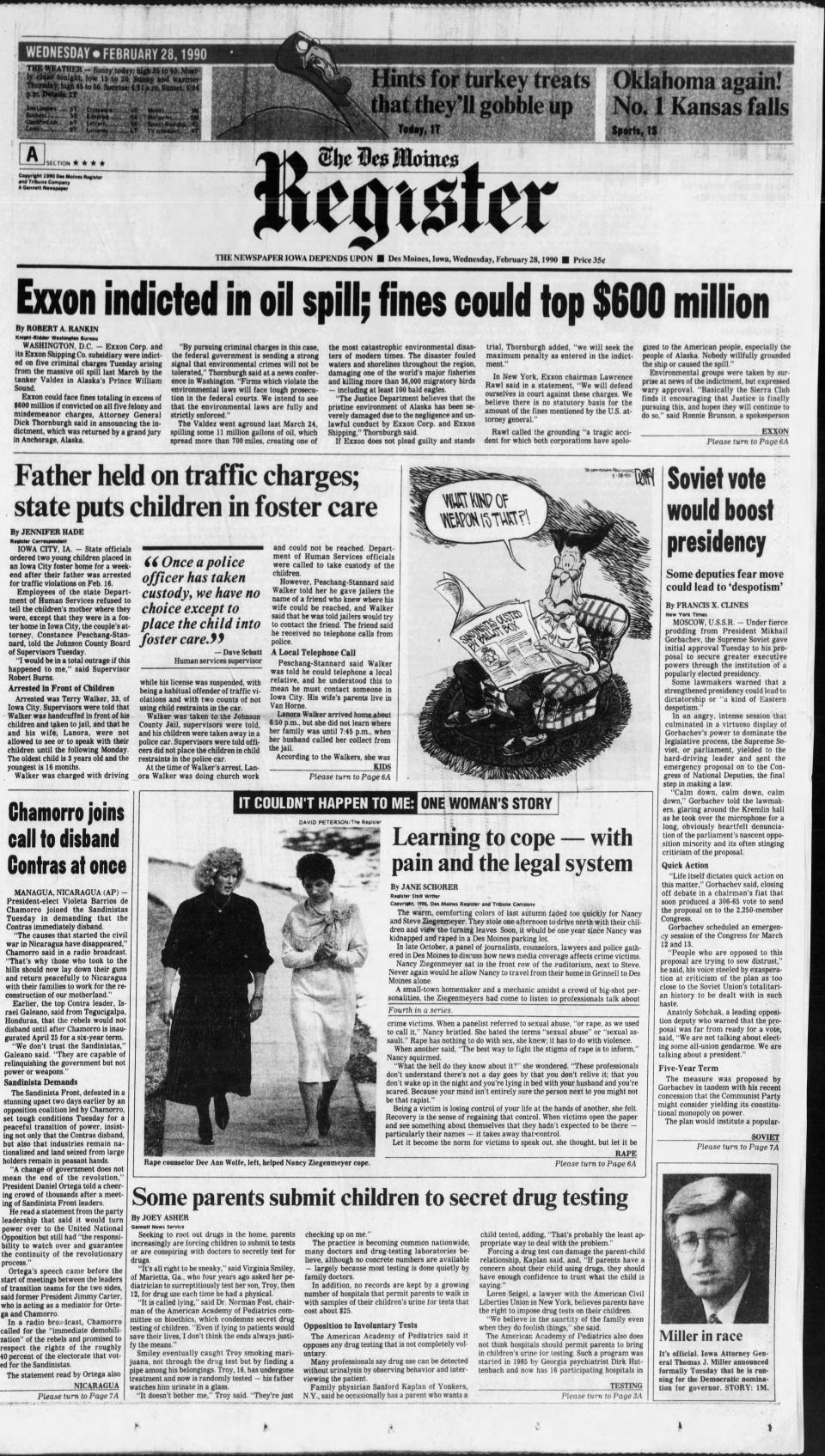
Register Editor Geneva Overholser in a column challenges rape victims to come forward and tell their stories as a way to dispel the unfair stigma surrounding rape victims, and Nancy Ziegenmeyer steps forward. Reporter Jane Schorer Meisner writes a series of stories based on interviews with Ziegenmeyer, who consents to be identified by name and photographed as she tells of the ongoing trauma of her rape, the frustrations caused by the legal system and how the experience has changed her life. The public service award bestowed for Schorer Meisner's unprecedented work is considered the most prestigious of the Pulitzers.
More: Former Register reporter, who won 1991 Pulitzer for rape series, reunited with award
2010: Photography
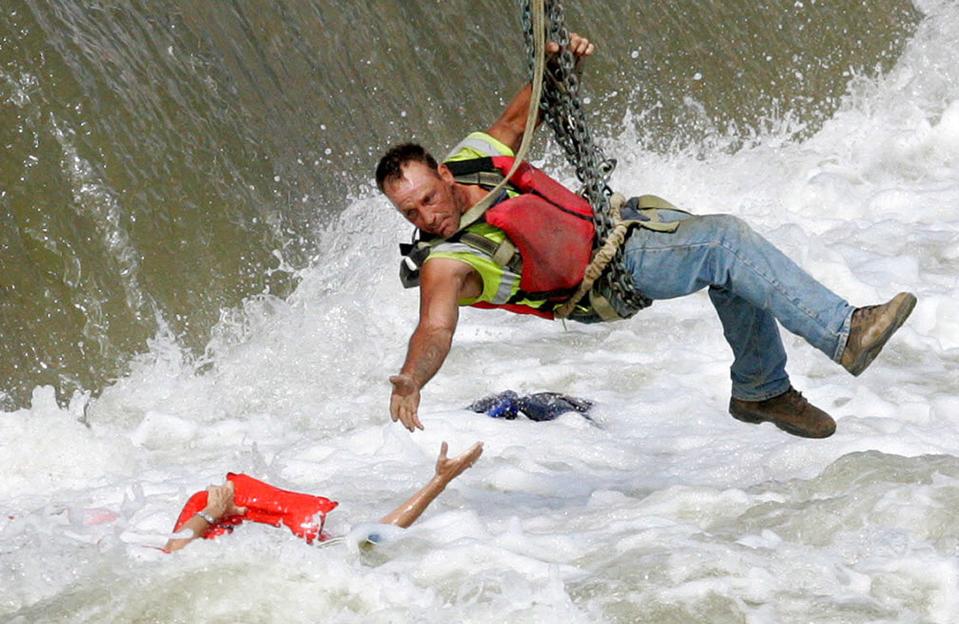
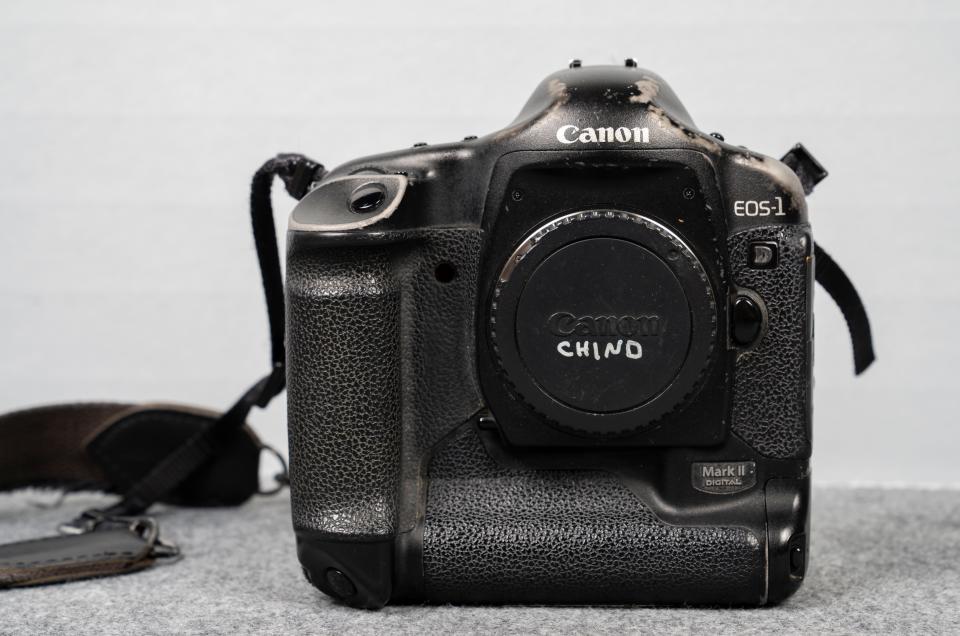
Register photographer Mary Chind-Willie captures a moment of high drama as construction worker Jason Oglesbee, who had been working on what will become Des Moines' Women of Achievement Bridge, dangles from a crane to snatch Patricia Ralph-Neely from the swirling waters after her and her husband's boat plunges over the' Center Street dam below, drowning him.
2018: Editorial writing
Editorial writer Andie Dominick wins for a series of editorials that the Pulitzer committee says examines "in a clear, indignant voice, free of cliché or sentimentality, the damaging consequences for poor Iowa residents of privatizing the state’s administration of Medicaid."
Compiled by Bill Steiden, Des Moines Register business and investigations editor
This article originally appeared on Des Moines Register: Des Moines Register wins 17 Pulitzer Prizes as it serves Iowa

